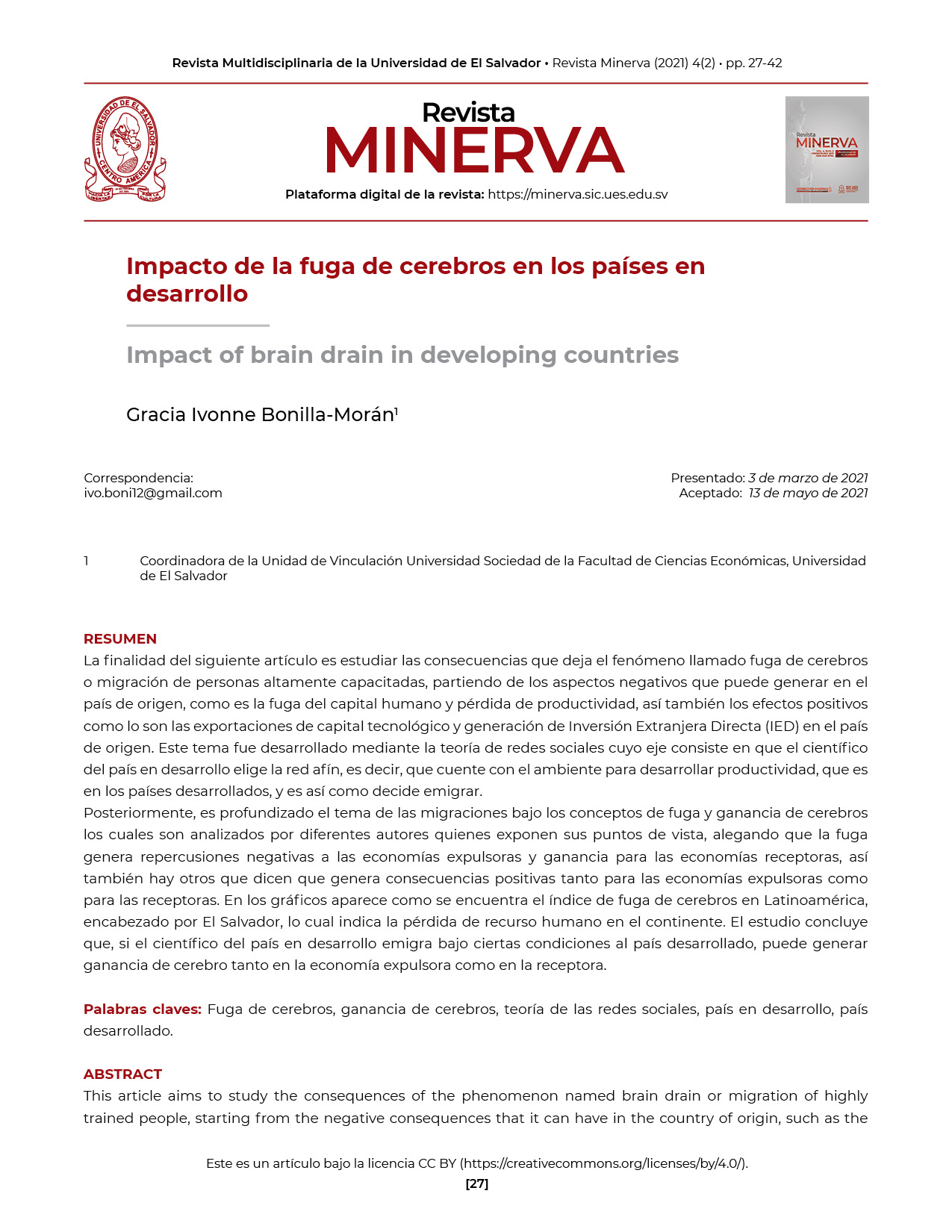Abstract
This article aims to study the consequences of the phenomenon named brain drain or migration of highly trained people, starting from the negative consequences that it can have in the country of origin, such as the flight of human capital and loss of productivity. Thus, it can also generate positive effects such as exports of technological capital and generation of Foreign Direct Investment (FDI) in the country of origin. This topic was developed through the theory of social networks which axis consists in that the scientist from the developing country chooses his/her related network, that has the environment to develop productivity, which is in developed countries, and that is how s/he decides to emigrate.
Subsequently, the issue of migration is deepened under the concepts of brain drain and brain gain, which are analyzed by different authors who expose their different points of view, claiming that the human flight generates negative repercussions for the ejector economies and gains for the receiving economies, thus, there are others who claim that it generates positive consequences for both the sending and receiving economies. The graphs show the brain drain index in Latin America, led by El Salvador, which indicates the loss of human resources in the continent. The study concludes that, if the scientist from the developing country emigrates under certain conditions to the developed country, he can generate brain gain in both the sending and receiving economies.

This work is licensed under a Creative Commons Attribution 4.0 International License.
Copyright (c) 2021 Authors who publish in Revista Minerva agree to the following terms: Authors continue as owners of their work, assigning only dissemination rights to Minerva Magazine under the standards of the Creative Commons Attribution 4.0 International License (CC BY 4.0). This license allows others to mix, adapt and build upon the work for any purpose, including commercially, and although new works must also acknowledge the initial author, they do not have to license derivative works under the same terms.




